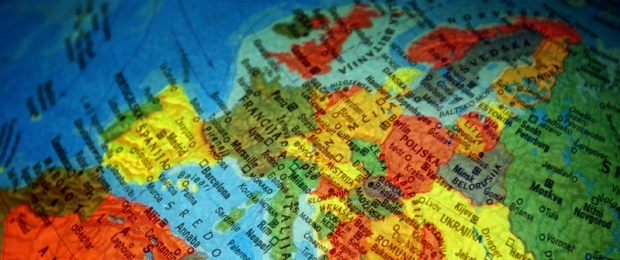
Is an old versus new European divide replacing East against West?
Are there really two Europes, as US Defence Secretary Donald Rumsfeld claims? His assertion in January that France and Germany represented an 'old Europe' seemed confirmed by the emergence of a 'new Europe' just a few weeks later. The 'Vilnius Group' of ten NATO aspirants published a letter calling or unity with the United States shortly after eight East and West European leaders riled the French and Germans by similarly pledging support.
It is tempting for Americans to assume that the new members of the EU will change Europe to Washington's liking. It is certainly true that most of the ten countries that will join the Union next year are strongly Atlanticist. They see NATO as the key guarantor of their security. Their political classes generally admire the United States for its prosperity as much as its stance against communism just as the Italians and British do.
But the cleavage between 'old' and 'new' members will not extend across all of foreign policy. The Central and East European countries are willing to join in a show of unity with the United States over Iraq. However, the involvement of the UN is crucial to their support of the US. The two letters argued that UN Security Council resolutions must be enforced a proposition with which all European countries can agree. Both France and Germany could probably have concurred with the text of these letters, as would the other EU countries that were not invited to sign them.
Central and East European leaders are seeking to balance Washington with Berlin and Paris, and they do not want to have to choose between Europe and America. They see no contradiction between supporting NATO and building up a European security and defence policy at the same time. The members-to-be want a strong transatlantic alliance, but they also want the EU to have an effective foreign policy, especially in the Balkans.
Neither letter indicates any enthusiasm to go to war. Political support is one thing, but military participation is quite another in Eastern Europe just as much as in Western Europe. There is strong public opposition to sending Czech, Hungarian or Polish soldiers to fight in the Gulf. For example, 60 per cent of Poles are against sending troops. US requests for help in the build-up to war in Iraq have provoked tortuous domestic debates in Central Europe. The Czech parliament is demanding a second United Nations resolution before the country's military can participate. Hungarian Prime Minister Péter Medgyessy says he would not send Hungarian troops without one.
After enlargement, the Union will not be cleanly divided between 'old' and 'new' groups of countries. Instead, the new members will join the old ones in forming short-term alliances. The composition of these shifting coalitions will depend on the issue at hand and not all of their stances will be welcome to the US.
Poland stands with Britain in opposing tax harmonisation, for example, but will support Spain against the UK in demanding a larger EU budget. By contrast, Estonia is largely against subsidies and will favour reform of European Union's agricultural policy, along with the Czech Republic and possibly Hungary. But Estonia will have similar interests to the Danes and other small countries in wanting Europe to protect its minority language films and TV against the dominance of Hollywood.
On economic policy, the new members will disagree with the US on some issues. They have liberalised their economies to a large degree, but they have a strong preference for the European model of social welfare. Their economies have already been opened up to global competition, but protectionism is becoming more tempting to Poland and the Czech Republic, as unemployment rises.
In short, the European Union's new members will behave like the old members. Their stances will depend on the issue in question, rather than long-term alliances. The United States can expect Europe's centre of gravity to move a little way eastwards as Rumsfeld asserted but that will not narrow the Atlantic.
